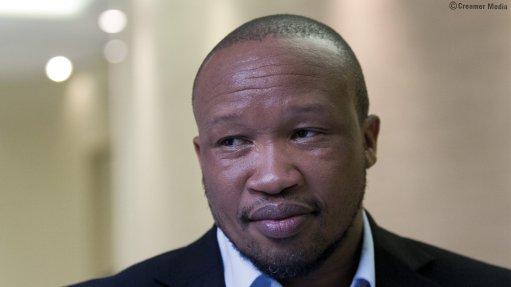
Numsa general secretary Irvin Jim
Photo by: Duane Daws
National Union of Metalworkers of South Africa (Numsa) general secretary Irvin Jim on Tuesday said the dumping of steel by Chinese producers in South Africa was a “crisis”.
He added that customs tariffs would be one of the main issues to be discussed at a meeting between Numsa, the management of South African steel companies and trade unions Soliarity and UASA.
“We don’t support import parity pricing, [and we have] been getting indications that companies are moving away from [this],” he stated.
Jim cited Highveld Evraz Highveld Steel & Vanadium, which was currently under business rescue, and ArcelorMittal South Africa (AMSA), which “might [close its] plant in Vereeniging completely” as issues that needed to be tackled.
“We are facing a crisis of plant closures . . . which will [lead not only to job losses but] also affect the supply chain,” he said.
Speaking prior to the closed meeting, Steel and Engineering Industries Federation of Southern Africa CEO and Business Leadership South Africa representative Kaizer Nyatsumba added that it was important for business and government to get together to stop the “bloodbath” that was going on in the steel sector and in the “underperforming” economy.
“We should, as South Africa be very concerned about that. We come here with an open mind so that, collectively, we can find a solution,” he noted.
The domestic steel industry was facing the challenge of low prices, electricity shortages, slow economic growth, weak market conditions and competition from cheap imports form China.
In 2014, the country’s apparent steel consumption decreased by 9.31% and real steel consumption by 3.1%, AMSA said.
It further estimated that imports comprised 40% of all steel consumed in South Africa during February and, as such, asked government to protect the domestic steel industry by imposing antidumping duties on imports of cut-price steel from China.
Domestic steel demand had also stagnated in recent years amid slow economic growth and slow progress in the roll-out of the country’s R847-billion public-sector infrastructure development plan.